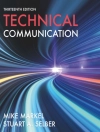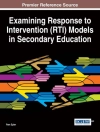′The authors who have contributed to this book bring a wealth of expertise and a wide range of research findings. This gives the reader the opportunity to link theory with practice in a helpful and illuminating way′ – Early Years Update
Praise for the first edition:
`…represents an enormously rich body of research and expertise focused on the objective of taking into account the social, historical and cultural dimensions of everyday activities in order to better understand children. …will undoubtedly be of interest and value to anyone with a similar concern′ – Early Years Journal
`…an international state-of-the-art early childhood education publication that sets out research-based evidence and critically links this with theory and practice. It is pitched at the graduate level and beyond. Readers will gain more from the book if they have a thorough base understanding of relevant learning and social-cultural theories and an open-mind to appreciate the perspectives presented in this book′ – Childforum, New Zealand
This fully revised and up-to-date edition examines sociocultural and historical approaches to current theories of learning in early childhood education. It sets out research-based evidence linking theory and practice in early childhood settings.
Written by leading figures in the field, the book extends a strong and traditional theme – the importance of the child′s perspective and respect for each child′s individual background.
Within the context of early years settings, the book is structured around four overall themes:
– the dynamics of learning and teaching
– the nature of knowledge
– assessment
– evaluation and quality.
This book is essential reading for undergraduate and advanced courses in early childhood studies.
Cuprins
Research Contexts across Cultures – Angela Anning, Joy Cullan and Marilyn Fleer
PART ONE: CONCEPTUALIZATIONS OF LEARNING AND PEDAGOGY IN EARLY YEARS SETTINGS
Developing a Pedagogy of Play – Elizabeth Wood
Scaffolding Learning and Co-Constructing Understandings – Barbara Jordan
Exploring Critical Constructivist Perspectives on Children′s Learning – Glenda Mac Naughton
PART TWO: THE NATURE OF KNOWLEDGE IN EARLY YEARS SETTINGS
The Co-Construction of an Early Childhood Curriculum – Angela Anning
Adults Co-Constructing Professional Knowledge – Joy Cullen
Building Bridges between Literacies – Denise Williams-Kennedy
PART THREE: ASSESSMENT IN EARLY YEARS SETTINGS
The Consequences of Sociological Assessment – Bronwen Cowie and Margaret Carr
On-Entry Baseline Assessment across Cultures – Peter Tymms and Christine Merrell
Cultural-Historical Assessment: Mapping the Transformation of Understanding – Marilyn Fleer and Carmel Richardson
PART FOUR: EVALUATION AND QUALITY IN EARLY YEARS SETTINGS
Quality Teaching in the Early Years – Iram Siraj-Blatchford
Questioning Evaluation Quality in Early Childhood – Valerie N Podmore
Multiple Pathways between Home and School Literacies – Susan Hill and Susan Nichols
PART FIVE: CONCLUSION
A Framework for Conceptualizing Early Childhood Education – Marilyn Fleer, Angela Anning and Joy Cullen
Despre autor
Angela Anning is Emeritus Professor of Early Childhood Education at the University of Leeds, where she worked for seventeen years in the School of Education. Her professional background is in early childhood education, particularly in inner cities. Her research interests include professional knowledge and practice in integrated services for children. In the last five years she has been a member of the National Evaluation of Sure Start team based at Birkbeck College, London.












